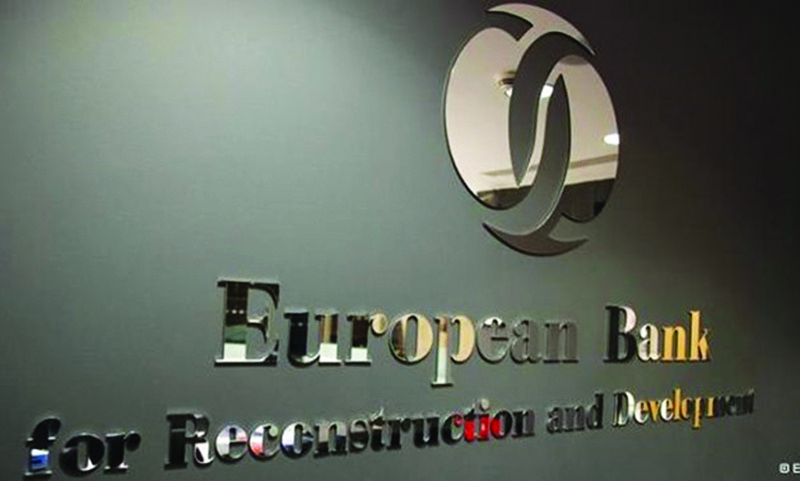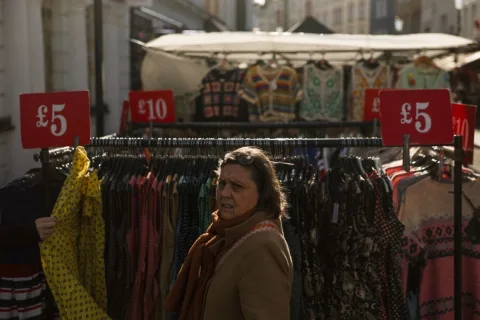 European Bank for Reconstruction and Development head office.
European Bank for Reconstruction and Development head office.LONDON: Europe's development bank yesterday forecast better-than-expected economic recovery this year across its geographical regions of investment following COVID-induced slumps. The European Bank for Reconstruction and Development revealed its revised estimates on the occasion of its 30th annual meeting, which is being held online this week due to the coronavirus pandemic.
The EBRD predicts average growth of 4.2 percent this year in the 38 emerging economies in which it invests, up from an earlier forecast of 3.6 percent. The bank was founded in 1991 to help former Soviet bloc countries switch to free-market economies but has since extended its reach.
"The recovery of the emerging economies in eastern Europe, central Asia and northern Africa is gathering pace following the COVID-19 pandemic," the EBRD said in a statement which cited the beneficial impact of vaccination. The institution, which invests alongside the private sector, then expects 3.9-percent expansion next year.
'Economies have restarted'
"The increasing rollout of vaccination programmes and improvements in the public health situation have allowed for a gradual withdrawal of social distancing measures and other restrictions," the bank said. "As a result, economies have restarted." Higher commodity prices had meanwhile handed a major boost to the revenues of commodity-exporting nations. Average activity in the EBRD's countries of investment shrank by 2.3 percent last year on chronic fallout from the coronavirus pandemic.
Yet this marked an improvement from prior guidance of a 3.9-percent contraction, thanks also to strong exports and fiscal support. The EBRD yesterday warned that the outlook remains clouded by uncertainty owing to the highly transmissible Delta COVID variant that was first identified in India.
"Huge uncertainty remains with regards to the path of the COVID-19 Delta variant which poses particularly large risks for countries that have made less progress on vaccinations and for economies highly reliant on international tourism," said chief economist Beata Javorcik. The lender, whose shareholders comprise almost 70 countries, has since grown to invest in 38 emerging economies spanning central and eastern Europe, Central Asia, the Middle East and North Africa.
Odile Renaud-Basso, a former head of the French Treasury, is overseeing her first EBRD annual meeting after taking the helm in November. Renaud-Basso told AFP in an interview ahead of the meeting that she wants to restore the bank's green investment targets while addressing workplace equality as economies recover. The bank last year invested a record 11 billion euros ($13.4 billion) across emerging economies to help counter fallout from coronavirus.
That marked a 10-percent increase from 2019. The institution is meanwhile targeting 2025 as the year when more than half its investments will be in green projects. It is also looking at being fully aligned with the goals of the 2015 Paris climate agreement by the end of next year. - AFP










